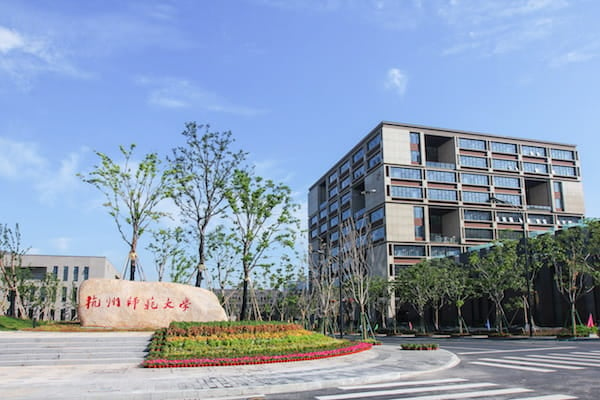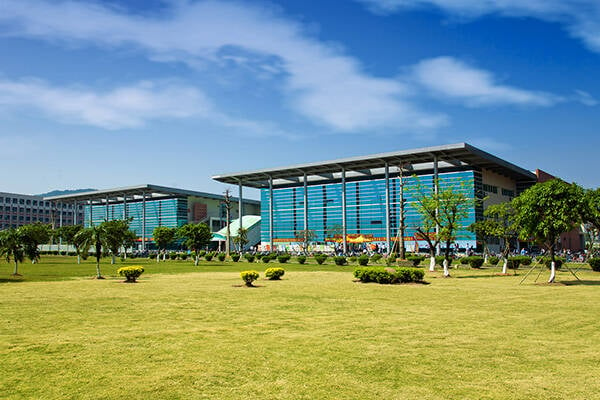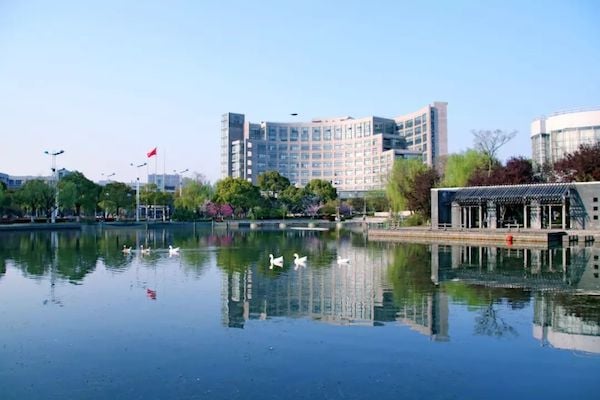 South China Agricultural University
South China Agricultural University
![]()
About South China Agricultural University
South China Agricultural University (website), one of the national key universities, is a “211 Project” university sponsored by both Guangdong Province and the Ministry of Agriculture during the ninth and tenth “Five-year Plan”. The university is also ranked to be “excellent” by the Inspection for Undergraduate Education organized by the Ministry of Education. Situated at Guangzhou, the “city of flowers”, the university enjoys beautiful scenery and pleasant environment. The campus covers an area of over 8250 mu (550 hectares), and the total gross floor area is over 1.37 million square meters.
The history of SCAU can be traced back to 1909 when Guangdong Agricultural Experimental Station affiliated with an Agricultural School was founded. After years of development and efforts, when the nationwide readjustments of university and college resources took place in 1952, the Station was already called the Agricultural College and became part of the National Sun Yat-Sen University. The college merged with the Agricultural College of Lingnan University and part of the Department of Veterinary Medicine as well as the Department of Pest Pathology of Guangxi University, and formed South China Agricultural College under the administration of the Ministry of Agriculture (MOA). Chairman Mao Zedong autographed the college name. The college was renamed in 1984 South China Agricultural University and was transferred under the administration of Guangdong Province in 2000 during the reform of the management system of higher learning institutions. The current CPC Secretary of SCAU Committee is Professor Li Dasheng, and the university president is Professor Chen Xiaoyang.
After a century-long development, the university has formed valuable tradition and shaped distinguished features as reflected by the university motto “Upgrading Integrity, Broadening Knowledge, Pursuing Truth, Seeking Breakthroughs”. A multi-layer educational system with graduate, undergraduate and continuing education is established. The university has 88 undergraduate programs, 12 primary disciplines authorized to confer doctorate degrees, 23 primary disciplines to confer master’s degrees, 45 doctorate programs, 117 master degree programs, 6 national key disciplines (1 under construction), 5 key disciplines of the Ministry of Agriculture, 12 Guangdong provincial key primary disciplines, 4 provincial key secondary disciplines and 1 key discipline of the State Bureau of Forestry. There are 22 colleges (departments): College of Agronomy, College of Resources and Environment, College of Economics and Management, College of Horticulture, College of Veterinary Medicine, College of Engineering, College of Life Sciences, College of Animal Sciences, College of Food Sciences, College of Forestry, College of Liberal Arts and Law Studies, College of Sciences, College of Information, College of Software Engineering, College of Arts, College of Foreign Studies, College of Hydraulic and Civil Engineering, College of Public Management, Department of Ideological and Political Studies, Department of Physical Education, College of Continuing Education and the Pear River College (independent college). The total enrollment of regular students is over 42,000, comprising 38,000 undergraduates, 4,000 graduates and 73 foreign students from 33 countries.
The university is strong in its academic areas. The number of staff and faculty of the university is over 2,900, including 1 member of Chinese Academy of Sciences, 1 member of Chinese Academy of Engineering, 4 members of the Discipline Appraisal Groups of the Academic Degrees Committee of the State Council, 4 Special Professors under the “Changjiang Scholar Incentive Program”, 12 Special Professors in higher learning institutions of Guangdong Province under the “Pearl River Scholar Incentive Program”, 3 National Outstanding Youth Fund winners, 5 national-level nominees for the Guangdong provincial “Thousand-hundred-ten Talent Program”, 2 winner of National Outstanding Teacher Award, and 3 National Outstanding Teaching Teams. More than 900 of the faculty are professors and associate professors, of whom, 218 are advisers for Ph.D programs and 791 for master degree programs.
The university is well equipped with teaching and research facilities. There are 9 post-doctoral research centers and 120 teaching and research laboratories, including 2 key laboratories of the Ministry of Agriculture, 2 key laboratories of the Ministry of Education, 10 Guangdong Provincial key laboratories, 4 provincial key teaching laboratories, 5 provincial key laboratories of Guangdong’s higher learning institutions, 1 State Demonstration Center for Experimental Teaching, 9 Provincial Demonstration Centers for Experimental Teaching, 2 Engineering Research Centers of the Ministry of Education, 2 National Bases and 2 Guangdong provincial key Research Bases for Humanities and Social Sciences. The university has also 10 National Outstanding Courses, 25 Provincial Outstanding Courses, and 9 Provincial Brandname Majors. The New Plant Variety Testing Center (Guangzhou branch) of the MOA, the Livestock and Poultry
In the future, the university will bring into full play its advantageous location of being at the frontier of the reform and opening wave and geographically near Hong Kong and Macau. It will develop in accordance with the human resource need of “building the New Socialist Countryside” as well as “allowing Guangdong to basically realize socialist modernization ahead of other provinces”. It will adhere to the principles of “top quality on a moderate scale, cost-effectiveness based on a sound system, and development rooted in a harmonious society”. The future teaching-research university will embrace disciplines well coordinated in agriculture, engineering, liberal arts, sciences, economy, management, and law studies. Advantages in agricultural sciences will be maintained, and priority in life sciences continued. By the end of the eleventh “Five-year Plan”, the university is to step into the top-class universities in China and become internationally recognized.
![]()
South China Agricultural University Campus
Campus Intro
Video by Students
Video Playlist
![]()
Foreign Teachers
![]()
About Guangzhou
Guangzhou, “The City of Flowers”, a prosperous metropolis full of vigor, is the capital city of Guangdong Province located along the south coastline of China. Being an excellent port on the Pearl River navigable to the South China Sea, and with fast accessibility to Hong Kong and Macau, Guangzhou serves as the political, economic, scientific, educational and cultural center in Guangdong area.
![]()
University Teaching Program
![]() ISAC University Teaching Program
ISAC University Teaching Program












